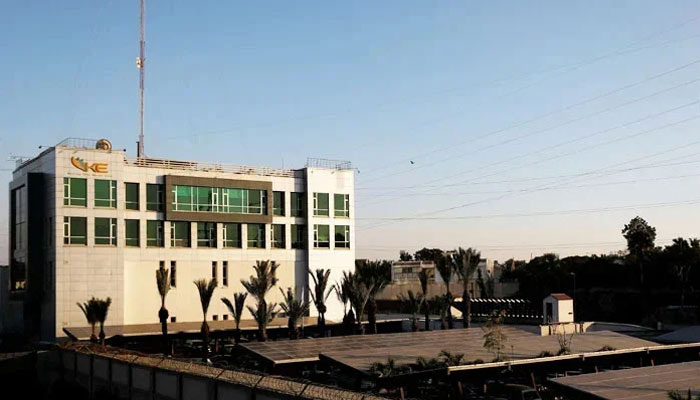
- Nepra schedules a public hearing for January 15, 2025 on KE’s petition.
- KE asserts an adjustment consistent with past decisions regarding monthly FCA.
- Hearing to see if the requested ACF is warranted, among other factors.
ISLAMABAD: Karachi electricity supplier K-Electric has submitted an application to the National Electric Power Regulatory Authority (Nepra), seeking permission to refund Rs 4.98 per unit to its customers.
The reimbursement is intended to compensate for the higher electricity rates applied in November 2024, News reported Saturday.
As part of the Monthly Fuel Charge Adjustment (FCA) for November, the company wants to refund around Rs 7.179 billion in the February 2025 billing month.
It is worth noting that earlier, under the FCA for September 2024, Nepra had asked the utility company to refund Rs 0.1758/unit to its customers in the billing month of December 2024. For the FCA of October, the company is ready to refund Rs.0.27/unit. The regulator held a public hearing on its request on December 12 and the decision is awaited.
Regarding the latest petition, Nepra has scheduled a public hearing on January 15, 2025 to review K-Electric’s petition. The hearing will focus on two main concerns: whether the requested ACF is justified and whether the utility complied with the established order of merit when producing electricity from its own power plants and its purchase from external sources.
If approved by the regulator, the adjustment will apply to all categories of consumers, except lifeline consumers, domestic consumers using up to 300 units, electric vehicle charging stations , prepaid electricity consumers of all categories and agricultural consumers. However, the negative adjustment to the monthly fuel charge adjustment (FCA) will also apply to domestic consumers with time-of-use (ToU) meters, regardless of their consumption level.
In its petition, K-Electric argued that the adjustment is consistent with Nepra’s previous decisions on interim monthly fuel cost adjustments for the period July 2023 to June 2024. The company highlighted that the interim FCAs have been authorized based on the parameters described in the multi-year agreement. Tariff (MYT) for 2017-2023, and adjustments may be implemented once the MYT for 2024-2030 is finalized.
The FCA for November 2024 was calculated using the provisional tariff established in March 2023 as a reference point. K-Electric’s submission included detailed calculations and supporting documentation for Nepra’s assessment and approval.
However, the utility provider has been criticized for its reliance on aging, gas-guzzling power plants, which contribute to rising costs borne by consumers or subsidized by the government. Furthermore, Nepra is also criticized for overlooking the company’s inefficiencies, particularly its failure to modernize its dilapidated four-decade-old factories.
These facilities produce expensive electricity, leading to higher rates for consumers and large government subsidies aimed at keeping prices uniform.
Additionally, stakeholders pointed out that no assessment has been carried out regarding the heat rate of K-Electric’s power plants, which produce expensive electricity.
To add to the controversy, the federal government has opposed K-Electric’s proposed tariff hike for 2024-2030, calling it inflated and unrealistic.
The government has recommended reducing the tariff from Rs 44.69 to Rs 34.87 per unit by tackling inefficiencies and adopting cost-cutting measures.
These include tying return on equity to the Pakistani rupee, sourcing more electricity from the national grid and implementing a take-and-pay model for generation contracts.
Officials estimate these reforms could save billions annually, easing financial pressure on consumers while improving operational transparency.
K-Electric CEO Moonis Alvi defended the company’s position, emphasizing the need for a cost-plus pricing structure to ensure financial viability.
culminating on Geo News’ “Aaj Shahzeb Khanzada Kay Sath” program, Alvi acknowledged room for adjustment, including recalibration of financial assumptions such as interest rates. The utility base tariff petition is being reviewed by Nepra, with stakeholders calling for a solution that balances consumer affordability and investor confidence.
